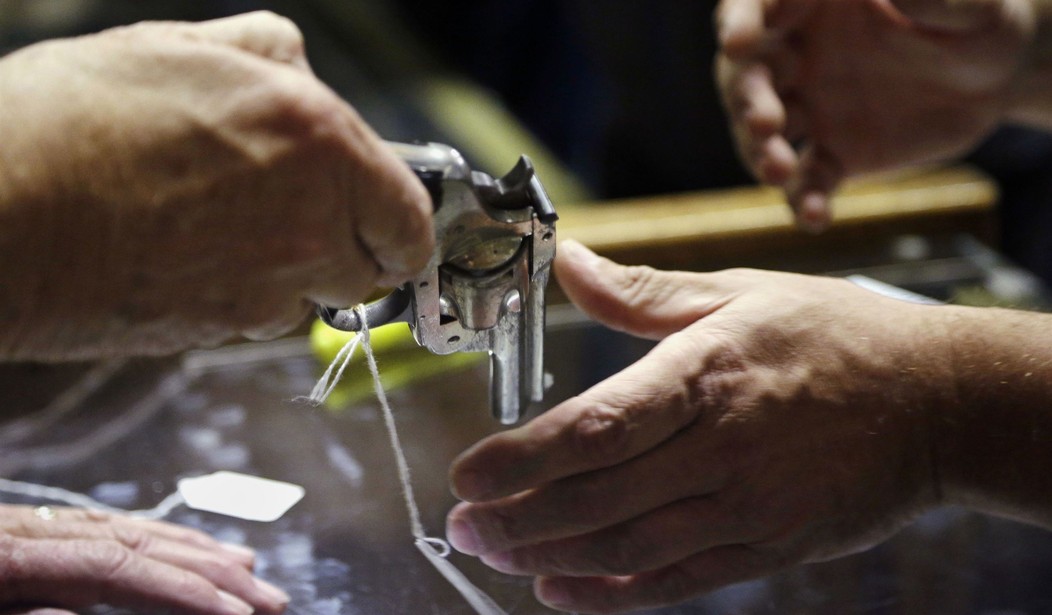The idea of banning anyone on the “No Fly” list from buying a firearm first gained popularity under President Barack Obama. The idea espoused to the public is that no one wants terrorists to buy guns, so by restricting anyone on the “No Fly” list from purchasing a firearm, we’d be thwarting potential terrorist attacks on American soil.
The problem is that the “No Fly” list has no due process attached to it. It’s really nothing more than a list of names of people the federal government believes to be terrorists. Some of these are fairly common names. As it’s applied in the airports, even young children are barred from boarding an airplane because their name is on a list.
Clearly, these kids aren’t a threat to national security.
And yet, some lawmakers wanted to use this to strip thousands of Americans of their gun rights, most of whom had done nothing wrong. With President-Elect Joe Biden set to take office, we may see a return of this idea. And that’s a huge problem.
A Supreme Court ruling this month, Tanzin v. Tamvir, No. 19-71, offers a few valuable insights into the “No Fly, No Buy” gun control proposal championed by the Obama administration, House Speaker Nancy Pelosi, failed presidential candidate Hillary Clinton, and Michael Bloomberg’s Everytown group, among others.
…
As a case in point, Tanzin v. Tamvir provides a concrete illustration of the many iniquities the use of the “No Fly” watchlist wreaks on innocent people.
The lawsuit involved practicing Muslims who claimed that FBI agents placed them on the “No Fly” list in retaliation for their refusal to act as FBI informants and spy on their religious communities. The evidence before the Court was that all of the plaintiffs are either citizens or lawful permanent residents of the United States. There was no suggestion that the men, their families, or their friends were suspected of terrorism or indeed, involvement in any criminal activity, and none “poses, has ever posed, or has ever been accused of posing, a threat to aviation security.” Throughout most of the initial court proceedings, the government refused to confirm that the men were on the watchlist, provide the basis for their inclusion, or “give them a meaningful opportunity to refute their designations.”
The initial court filings in 2013 detail repeated visits and calls in which FBI agents harassed and intimidated the plaintiffs – among other things, by demanding or performing lie-detector tests, questioning family members, and asking about gun use. In one instance, FBI agents allegedly made an unannounced visit to one of the men to tell him that his efforts to get congressional assistance regarding watchlist removal (including help from Senator Chuck Schumer) were pointless: “Congressmen can’t do shit for you; we’re the only ones who can take you off the list.” It was only after the plaintiffs sued and four days before the argument date at the district court that they were notified they had been removed from the “No Fly” list.
FBI agents reportedly told the individual that Congress couldn’t do anything for them, that the FBI controlled the watch list.
Now, let’s keep in mind just how politicized the FBI has become. Few on the political right actually trust the FBI to any significant degree. Not as an organization. With the way parts of the FBI seemed to declare their own jihad against President Donald Trump, it’s clear to many that there’s a leftward lean in the bureau.
And you want some expect us to trust them to keep a fair list?
No, sorry.
It’s clear from this court case just how hard it is to get removed from the “No Fly” list and just how easily you can be put on there. This is a man who reportedly just refused to be an FBI informant. Even if there was significant terrorist activity as his mosque–something that doesn’t seem to be the case–refusing to be an informant is still within an individual’s rights.
Further, trying to get off the list led to clear cases of intimidation by FBI agents.
How long before gun owners will be told they need to start spying on their gun groups for FBI agents? How many will be told to start hanging out at gun stores and report back to FBI handlers or risk losing their gun rights? Let’s be honest, they can justify whatever they want by saying they’re investigating domestic terrorism and make it look legit.
Meanwhile, law-abiding Americans may have their names added to a list, all because they won’t spy on their friends.
Without some mechanisms for not just finding out you’re on the list but also for finding out how to get off of it, there’s no way such a list should even be considered for such a thing. Even then, I’d still oppose it, of course, but at least then it would create the illusion they respect our Second Amendment rights.
As it is, it’s just another excuse to create more prohibited people for no valid reason.







Join the conversation as a VIP Member